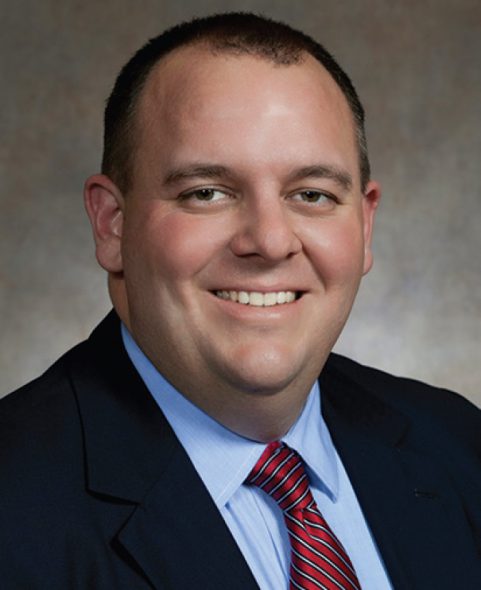Senate Targets Governor’s Veto Power
Pushes constitutional amendment to limit partial veto. Legal group WILL will pursue Supreme Court review.
At a public hearing on Tuesday, members of a state Senate committee on government oversight heard testimony on a proposed joint resolution that would ask voters to approve a constitutional amendment “prohibiting the governor from using the partial veto to increase state expenditures.”
Committee Chairman Sen. David Craig (R-Big Bend), who sponsored the resolution, argued that “the governor has usurped the legislature’s authority” by partially vetoing the state education budget, causing an increase in education spending.
“What Wisconsinites have consistently tried to do” over the last several decades, Craig said, “is rein in executive authority.”
The legislature, not the governor, Craig noted, has “the power of the purse.”
Craig’s argument, that the people of Wisconsin are concerned about a power grab by the executive branch, runs counter to widespread criticism of the Republican legislative majority, which held a special lame-duck session to remove powers from the new Democratic governor and attorney general just before they took office.
Last week, in a series of rules changes attached to a bill offering accommodations to a disabled lawmaker, the Republican-controlled Assembly also gave itself the power to take multiple votes in an attempt to override the governor’s veto.
But according to Craig and Lucas Vebber of the Wisconsin Institute for Law and Liberty (WILL), who also testified in favor of the constitutional amendment, the people of Wisconsin have been concerned about executive overreach for some time.
“The separation of powers among the three branches of government is the bedrock of liberty,” Vebber testified.
And liberty itself is threatened by the Wisconsin governor’s powerful veto pen, he added.
Generations of Wisconsinites have sought to reduce the power of the governor’s line-item veto, Vebber said. He cited a 1990 referendum that forbade the use of the so-called Vanna White veto, used by Republican Gov. Tommy Thompson to veto individual letters of a bill to create new words. That effort was followed by a 2008 referendum banning the “Frankenstein veto,” used by governors of both parties to veto certain words to create new sentences and to redirect funds in ways not approved by the legislature. Democratic Gov. Jim Doyle used the “Frankenstein veto” to transfer $427 million intended for transportation funding into public schools.
The current effort, which would add one line to the state constitution, Vebber noted, is part of that history of reform. “Supporting this resolution is simply saying you trust the people of Wisconsin,” he told the Senate committee. “Let the people vote.”
WILL is also seeking to bring a case directly before the state Supreme Court, bypassing the lower courts, and seeking to argue that the Court should disregard four decades of precedent and overturn Evers’ partial veto powers.
Sen. Fred Risser (D-Madison) raised concerns about “unintended consequences” of the proposed constitutional amendment. “A vindictive legislature could come up with some selective cuts,” he said. He offered the example of a legislature that didn’t like the way a particular official or agency was behaving, and decided to cut salaries for Supreme Court justices or appropriations for the office of the Secretary of State.
Neither Craig nor Vebber was sure about the answer. Vebber conceded it might merit further investigation and an amendment to the resolution.
The language in the resolution, forbidding the governor from increasing spending “for any purpose” also troubled Risser. “That’s kind of a strict criteria,” he said, and wondered what might happen in the case of an emergency.
Sen. Lena Taylor (D-Milwaukee), who joined the meeting by phone, her voice piped into the hearing room over a loudspeaker, made a broader point about the balance of power in state government. “The governor was elected statewide,” she said.
“The people don’t agree with the policies being enacted by the legislature, because the legislature is only in because of unfair maps,” she added, while the governor “has more votes than any of us.”
“Do you feel the same way” about usurping powers when the legislature “undoes the Medicaid expansion [Evers] ran on?” Taylor demanded of Craig.
Craig agreed that “the people of Wisconsin’s voice is expressed by the executive branch with the election of the governor,” but he returned to the issue of the legislature’s “core authority” which, he said, is “the power of the purse.”
Taylor countered that the legislature already has the power to override the governor’s veto — the check on executive authority that ”our founders put in place.”
“Your challenge is because he gave more money to the schools to educate our children and make sure our future is in place?” Taylor said testily.
“You’re OK with a governor coming in and expanding what the obligation of the taxpayers is?” Craig shot back.
Taylor and Craig then got into an argument, with each talking over the other. Neither was audible for a few minutes.
“After this horrendous thing that you spoke about — funding our kids to be educated,” Taylor said sarcastically.
“I didn’t say it was horrendous,” Craig interjected, rephrasing the governor’s budget veto as a “unilateral increase in education funding that had not been authorized by the legislature.”
But the legislature did authorize the budget, in a sense, Taylor pointed out, when it chose not to override the veto.
“The legislature did not choose to override him — yet,” Craig conceded.
Overall, polls show that Wisconsinites like what Evers is doing, Taylor said. “Have you received letters from people saying, ‘Don’t fund our schools?”” she asked Craig.
Craig said he had received letters from constituents “concerned about the executive’s usurpation of authority.”
“The great thing,” he added, “is at the end of the day, the people of Wisconsin will be able to decide.”
Reprinted with permission of Wisconsin Examiner.






















